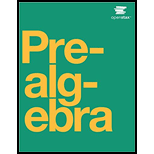A therapist believes that the music a child listens to may have an impact on the number of words on a list he or she can memorize. In order to test this, the therapist selects a random sample of children for an experiment. She has the children look over a list of 100 words for 5 minutes while listening to classic rock music. After the 5 minutes, she tests the children to see how many words they can remember from the list. She then does the same experiment, this time with a different list of words, while the children listen to classical music. Suppose that data were collected for a random sample of 19 children, where each difference is calculated by subtracting the number of words remembered listening to classical music from the number of words remembered listening to classic rock music. Assume that the numbers of words are normally distributed. The test statistic is t≈6.448, α=0.05, the corresponding rejection regions are t<−2.101 and t>2.101, the null hypothesis is H0:μd=0, and the alternative hypothesis is Ha:μd≠0. Which of the following statements are accurate for this hypothesis test in order to evaluate the claim that the true mean difference between the number of words remembered when listening to classic rock music and the number of words for classical music is significantly not equal to zero? Select all that apply: A) Reject the null hypothesis that the true mean difference between the number of words remembered when listening to classic rock music and the number of words for classical music is equal to zero. B) Fail to reject the null hypothesis that the true mean difference between the number of words remembered when listening to classic rock music and the number of words for classical music is equal to zero. C) Based on the results of the hypothesis test, there is enough evidence at the α=0.05 level of significance to suggest that the true mean difference between the number of words remembered when listening to classic rock music and the number of words for classical music is not equal to zero. D) Based on the results of the hypothesis test, there is not enough evidence at the α=0.05 level of significance to suggest that the true mean difference between the number of words remembered when listening to classic rock music and the number of words for classical music is not equal to zero.
A therapist believes that the music a child listens to may have an impact on the number of words on a list he or she can memorize. In order to test this, the therapist selects a random sample of children for an experiment. She has the children look over a list of 100 words for 5 minutes while listening to classic rock music. After the 5 minutes, she tests the children to see how many words they can remember from the list. She then does the same experiment, this time with a different list of words, while the children listen to classical music. Suppose that data were collected for a random sample of 19 children, where each difference is calculated by subtracting the number of words remembered listening to classical music from the number of words remembered listening to classic rock music. Assume that the numbers of words are
Which of the following statements are accurate for this hypothesis test in order to evaluate the claim that the true mean difference between the number of words remembered when listening to classic rock music and the number of words for classical music is significantly not equal to zero?
Select all that apply:
A) Reject the null hypothesis that the true mean difference between the number of words remembered when listening to classic rock music and the number of words for classical music is equal to zero.
B) Fail to reject the null hypothesis that the true mean difference between the number of words remembered when listening to classic rock music and the number of words for classical music is equal to zero.
C) Based on the results of the hypothesis test, there is enough evidence at the α=0.05 level of significance to suggest that the true mean difference between the number of words remembered when listening to classic rock music and the number of words for classical music is not equal to zero.
D) Based on the results of the hypothesis test, there is not enough evidence at the α=0.05 level of significance to suggest that the true mean difference between the number of words remembered when listening to classic rock music and the number of words for classical music is not equal to zero.
Trending now
This is a popular solution!
Step by step
Solved in 2 steps








